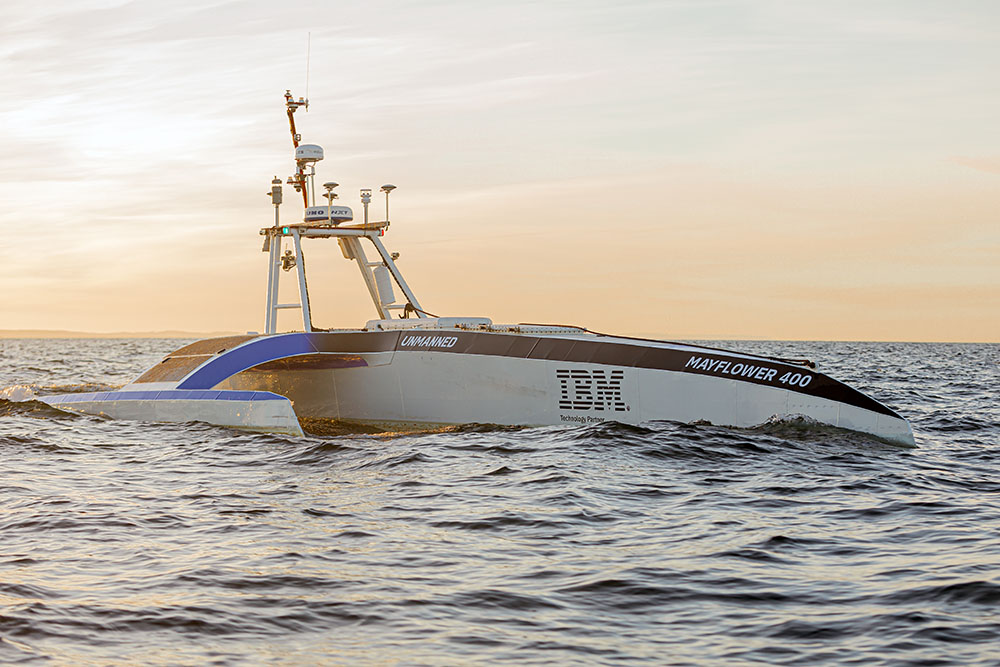The Mayflower Autonomous Ship (MASS) has stopped its historic transatlantic crossing of the Atlantic Ocean three days after the initial launching due to “a small mechanical problem”.
The project organizers ProMare, a non-profit marine research group, and IBM have released an update of the self-operating vessel stating that “the support team has arrived and is in the process of bringing MASS400 back to base for assessment and repair”.
The solar-powered research vessel started its journey on 15th June from Turnchapel Wharf, Plymouth, UK.
After the recovery team reached the autonomous vessel on 21st June, images of the recovery vessel arriving at the Mayflower were posted on the social media. The team also reported that “comms are live but we have temporally turned off some non-essential systems to conserve power”.
Once the team has arrived at the scene, comments talked that the vessel is ready for turning back. One of the team members commented that “the computer systems are working fine”, as well as “the video recorder, but the status monitor for it is misreporting it”.
The pioneering mission is the result of years of work and a global collaboration between ProMare, IBM, and dozens of partners from across industry and academia.
The voyage was expected to last three weeks before the final arrival at Provincetown, and the vessel would again make its way back to Plymouth.
During the voyage, the vessel was gathering data about the ocean with 6 AI cameras and 30 onboard sensors.
The ship’s AI Captain performed a similar role to a human captain. While the vessel was assimilating data from a number of sources, the AI Captain assessed the route, status, and mission, and made decisions about what to do next.
Cameras and computer vision systems scanned the horizon for hazards, while the streams of meteorological data revealed potentially dangerous storms.
The project aims to aid the development of fully autonomous AI systems and applications for use in a variety of industries such as shipping, oil, and gas, telecommunications, security and defence, fishing, and aquaculture.
Source: Offshore Energy






